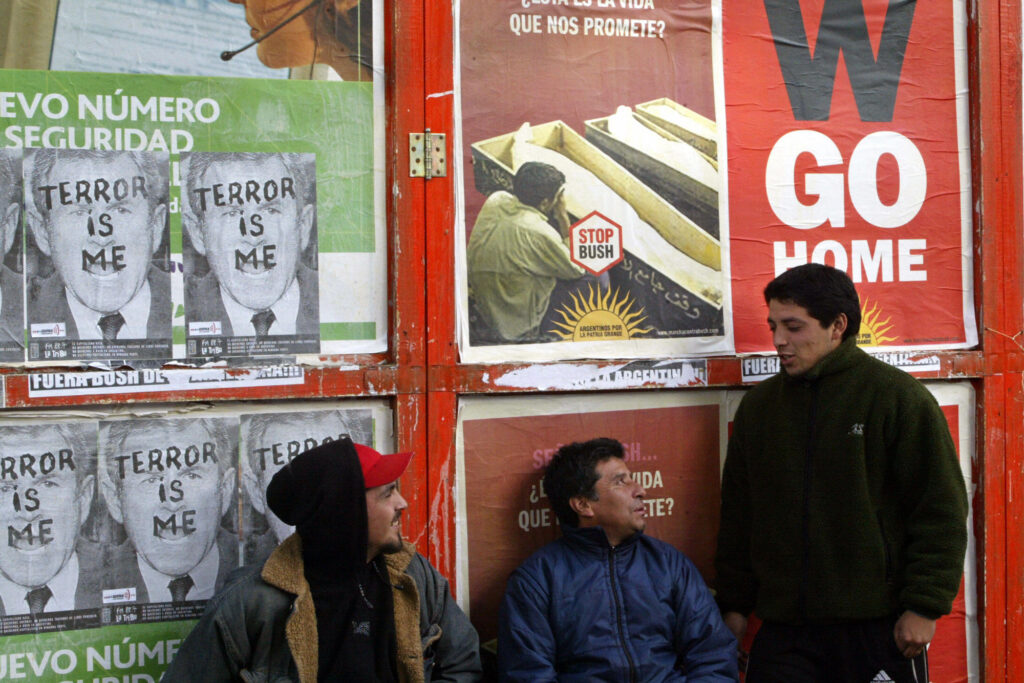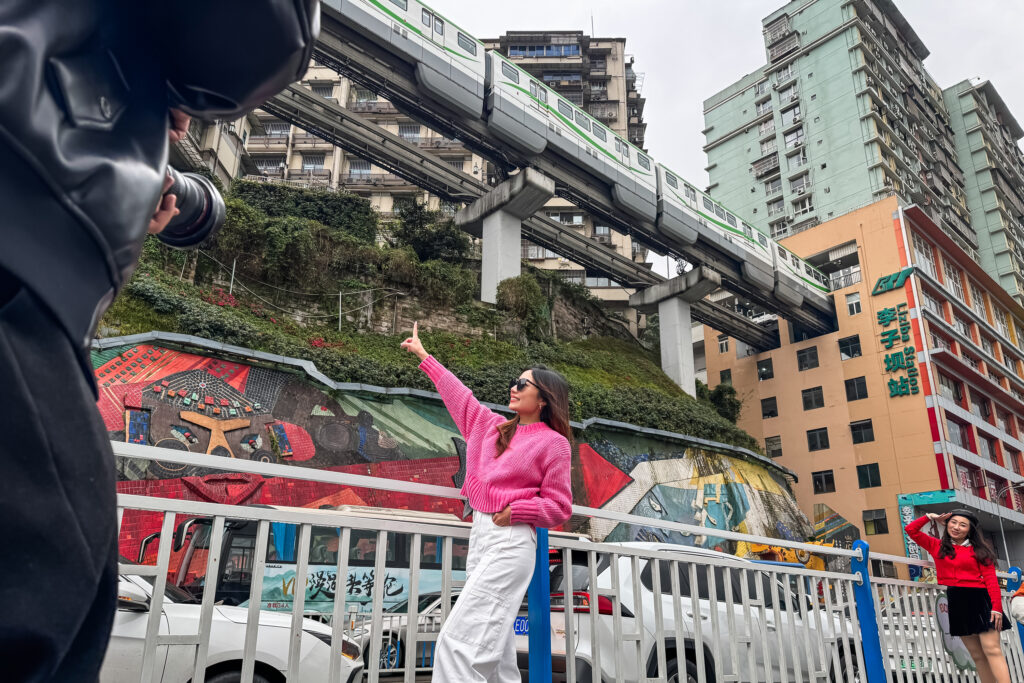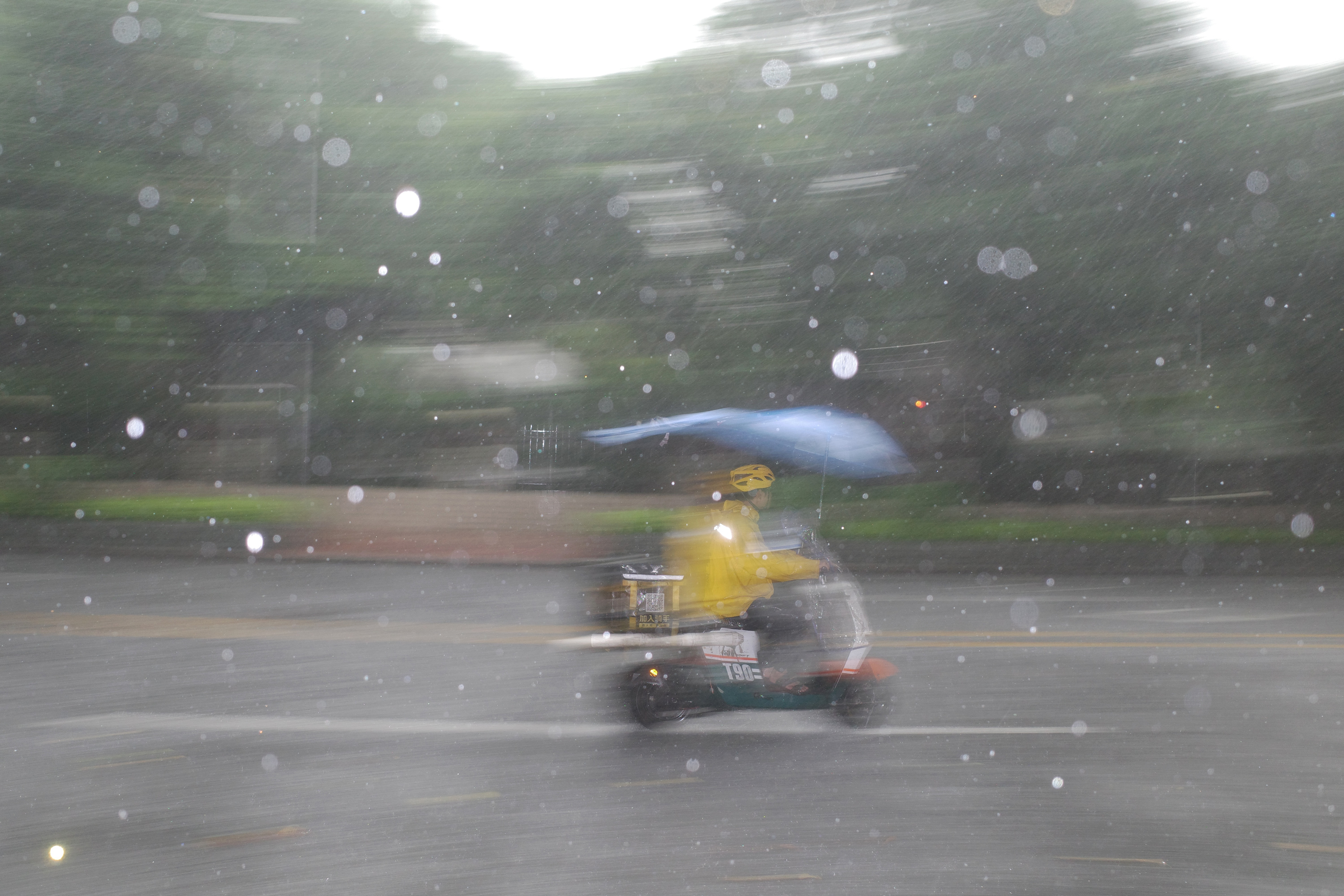The porteño Juan Elman is one of Latin America’s sharpest journalists, and we have had the pleasure to feature him twice in our pages. Here Elman takes a synoptic, historical view to address the complex state of play of the left across the region over the last two decades.
Owen Hatherley has been writing imaginatively for some time on the intersection of architecture, urbanism, and political culture in different socialist and post-socialist hot spots. He considers a curious trend of foreign vlogging about China, and what the subculture’s obsessive and weird components mean about the West.
Further on China, Kaiser Kuo’s essay from several issues back has inspired a flood of commentary, but few takes are as compelling as Afra Wang’s. Wang, who grew up in the PRC, unearths new generational perspectives, which add additional layers to the contemporary Chinese condition.
Our curated content for Issue 53 begins with a review of a book by my colleague Balazs Trencsényi, a historian at Central European University, whose stunning new offering at Oxford UP unpacks, theorizes, and historicizes the idea of crisis in Europe. The essay, by Aurelian Craiutu in the Los Angeles Review of Books, gets to the heart of things.
Another fine colleague we have the privilege of featuring is the Nigerian writer Ayisha Osori, who interviews Minna Salami on her recent work reconsidering the feminist dimension in Africa.
The Johns Hopkins political scientist Henry Farrell revisits the political theory of Ernest Gellner to regain a grip on the messy concept of civil society and its relevance to the American right today.
Finally, Ville Lähde, in the peerless digital publication Aeon, asks whether our concept of the Anthropocene has reached its terminus. The jury is still out.
Musically, we feature the infectious Turkish funk number “Goca Dünya” (Old World) from the group Altın Gün. Their reinterpretations of classic Turkish folk songs have been celebrated across Europe (they base themselves in Amsterdam).
—Leonard Benardo, senior vice president at the Open Society Foundations
Continental Contradictions

Juan Elman
The Ideas Letter
Essay
Latin America is a region marked by divergent political trajectories and deepening internal crises—from Venezuela’s authoritarianism to the spread of organized crime. These leave left-wing governments unable to articulate a shared response to Trump’s efforts to leverage security fears, economic fragility, and ideological affinities to expand US influence in ways unthinkable just twenty years ago, at the dawn of the Pink Tide. What emerges from this contrast is the unsettling sense that Latin America now confronts US intervention from a position of division and vulnerability.
“This regional fragmentation mirrors the fragmentation within Latin American political systems themselves, compounded in some cases by greater ideological polarization. Not only is there no unified position within countries, but these positions are often antithetical. And it is no coincidence that it is in these polarized scenarios that Trump intervenes to help ideological allies.”
The Shock and Vlog of China’s Urbanism

Owen Hatherley
The Ideas Letter
Essay
Hatherley examines the burgeoning world of Western “China Influencers,” whose tightly edited vlogs roam through Shenzhen, Shanghai, or Chongqing in search of gleaming metros, neon skylines, and frictionless infrastructure, projecting a fantasy of futuristic urban abundance. These content creators celebrate the visible marvels of China’s developmental state while largely bypassing its political constraints, social contradictions, and the ordinary spaces that fall outside the cyberpunk frame. Their videos, Hatherley suggests, reveal less about China itself than about the imaginative hungers and blind spots of audiences accustomed to the infrastructural stagnation of the Anglo-American world.
“But there are three much more unusual accounts that the algorithm led me to through association, and that were, for once, genuinely surprising. One of these is Little Chinese Everywhere, run by a Chinese geography graduate who travels, often on a little two-seater motor-scooter, often with her German partner, through the edges of China. There are drone shots and slick photography in her videos, but they bring her most frequently to the rural and peri-urban non-Han outskirts of the PRC and from there into Central Asia. Rather than (politically impossible) condemnation or apologism, her videos of China’s western and northern borderlands build up a picture of a multicultural and extremely uneven country, a place full of complexities and contradictions, rather than one marching in lockstep toward a cyberpunk future.”
Another Reckoning
(With China)

Afra Wang
The Ideas Letter
Essay
Wang traces the emergence of multiple generationally distinct “reckonings” with China among different groups: There are the young Americans who encounter the country as offering a sleek, TikTok-mediated vision of modernity; a previous generation of intellectuals in the West, like Kaiser Kuo, who in a recent Ideas Letter essay called for dismantling the inherited certainties of US centrality; and the Silicon Valley engineers now studying China’s industrial systems with almost technical reverence. Wang also maps the rise of homegrown Chinese internet theories—Industrial Party, ruguan, “winnology”—through which young Chinese articulate their country’s trajectory outside the conceptual vocabulary of Western liberalism.
“… On the Chinese internet, an entirely different sensibility is taking shape. Young users, unburdened by the need for international approval, play with ideas more freely. They make theories out of memes, stitch together allegories from history and science fiction, and build conceptual worlds that do not seek validation from anyone outside their own circles. Their reckoning is not a continuation of Western thought, nor a rebellion against it. It is a refusal to let Western categories set the terms of their imagination.”
In the Shadow of Yesterday
Aurelian Craiutu
Los Angeles Review of Books
Essay
The Hungarian historian Balázs Trencsényi’s new book Intellectuals and the Crisis of Politics in the Interwar Period and Beyond offers a transnational excavation of Europe’s crisis discourses, written by a scholar whose own trajectory mirrors the destabilizations he studies. Craiutu argues that by shifting attention from Western Europe to the “peripheries,” Trencsényi recovers forgotten debates and intellectual networks that complicate reassuring binaries between East and West or national and global frames. The result is a multifocal history of European political thought that reveals how the dilemmas of liberal democracy have been most sharply felt—and most imaginatively contested—on the margins.
“One of the main theses of the book is that framing an event as a ‘crisis’ is never a neutral act. Crisis discourses are tools that can be easily abused or weaponized, depending on one’s political agenda. They have significant normative implications and may be used as cathartic mechanisms of creative destruction or, on the contrary, as means of radicalizing existing conflicts. Sometimes, crisis discourses are mere speech acts, seeking to mobilize one audience or another. At other times, they trigger challenges to political regimes. Rousseau, Marx, and Lenin interpreted the social and political crises of their respective times as omens of future revolutions. In other instances, however, crises do not involve a total breakdown of the existing regime but point out opportunities for innovation and structural reform.”
Can Feminism Be African?
An Interview with Minna Salami
Ayisha Osori
The New Books Network
Podcast
Salami argues that African feminism should not be understood as a “report card” on women’s suffering, but is, in fact, a rich political philosophy that interrogates the very meanings of Africa, feminism, and being itself, challenging colonial educational legacies and the paradoxes that structure feminist thought. Patriarchy in Africa remains deeply rooted—as well as distinct from Western capitalist male dominance—and both nation-states and development-sector “Gender and Development” frameworks often obscure or dilute radical feminist aims. Salami calls for African feminism to build a new language, clarify its own intellectual history, and engage deeply with ideas—rather than tokenistic representation—as the path toward genuine transformation and freedom.
“So, language is something that I want or hope that this book inspires more feminists to engage with. If we think for example of a word like ‘sexism’—it was invented in the 1960s or seventies—and it’s not that women didn’t experience sexism prior to that age, obviously, they did to a greater measure than ever. But the tremendous aid of having that word in order to create new legislation, in order to describe experiences that we have as women and how harmful they are. … What I was motivated to do in the book is to create a new lexicon of sorts with which we can counter the nation- state, oppressive laws, or narratives, whatever it might be, but to have those words or the beginnings for a lexicon with which we can then understand and address those things.”
What Is Civil Society, and Why Should We Care?
Ernest Gellner on the Conditions of Liberty
Henry Farrell
Programmable Mutter
Essay
Farrell argues that the British-Czech philosopher Ernest Gellner’s classical-liberal concept of civil society—a historically contingent space of voluntary, pluralistic associations that can restrain the state—is essential for understanding today’s authoritarian turn on the American right. Farrell defines civil society emphasizing Gellner’s notion of “modular” social life, according to which individuals can freely join and exit associations that remain independent of both government and kinship structures. He stresses that this fragile form of civil liberty arose only through a rare historical stalemate and is now threatened by political movements seeking to capture or destroy the autonomous institutions that make pluralism possible.
“From Gellner’s perspective, civil society is an essential underpinning of our current way of life. The worry is that it is not universally essential. Other ways of organizing society, many of which would strike us as wicked or miserable, can be maintained without it. Indeed, maintaining civil society may be a continual challenge. Civil society requires the management of nationalism (some sense of national identity is good, to mitigate more immediate sources of partiality, but not too much). So too for the market system: ‘a liberation of the market from political control would be catastrophic.’ Civil society may be burdensome to the individual: in many respects, living in a modular world is far more demanding than living in a society where you know exactly what role you are supposed to play. Yet its benefits, in the eyes of those who have adopted its norms at least, are enormous.”
Are You Confusedocene?
Ville Lähde
Aeon
Essay
An expert panel of geologists determined that the “Anthropocene” doesn’t qualify as a geological epoch, but the debate over whether it does ultimately exposes deeper confusion about how we conceptualize humanity’s ecological entanglements. With the formal definition of Anthropocene no longer anchored to a geological verdict, we have a chance to reconsider how to conceptualize human impact on the earth. Rather than fixating on competing origin stories or single, exclusive causes, Lähde suggests approaching it as a long, uneven historical process unfolding across many timescales. Indeed, the Anthropocene might be better understood as a different geological term.
“The notion of the Anthropocene as an event, as a long-term process, allows us to keep in mind different rhythms of history at the same time: environmental changes that have roots closer to the surface and those that dig deeper. Why on Earth should anything so complex as our ecological peril have one root cause? This is what roots do, dig into many directions at the same time. This does not let anyone or anything ‘off the hook,’ it means that we have to be mindful of both the younger and the older roots of our predicament, to look at a plethora of root causes.”
